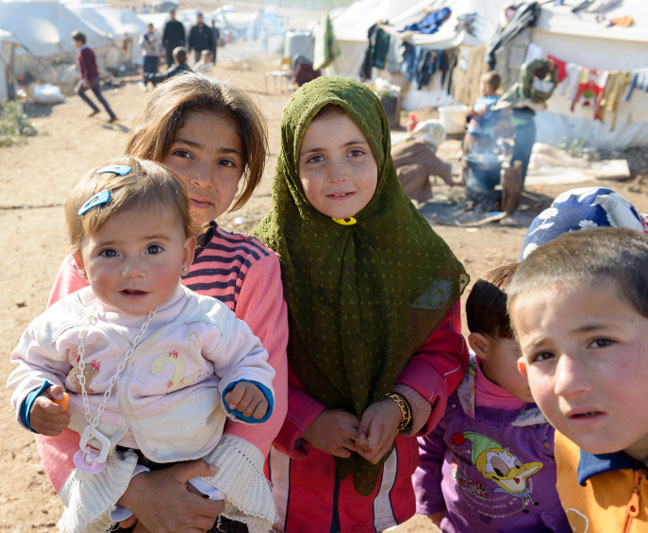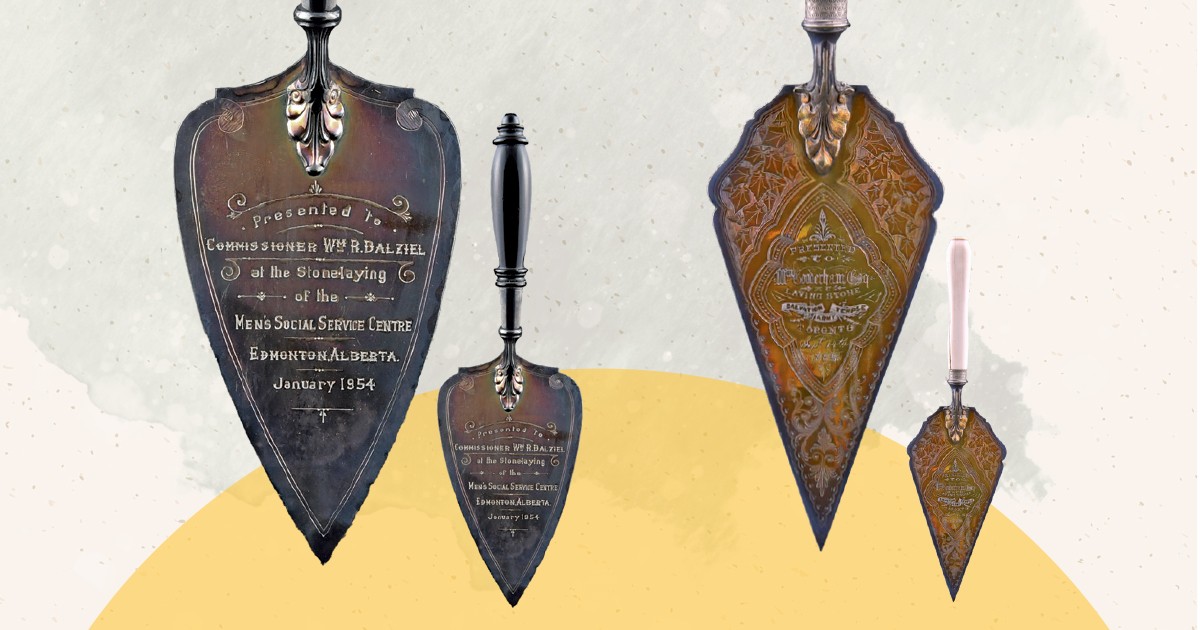Magbola Alhadi and her children survived months of bombing raids but were forced to flee when soldiers came and opened fire on their village. The most important thing she brought with her was a cooking pot—small enough to carry on their 12-day journey, yet big enough to cook for her family.
Imagine if your family had just 1 minute to flee... what would you take?
Alhadi's story, shared on the United Nations High Commissioner for Refugees (UNHCR) website, is all too common. Today, more than 50 million people—the largest number since the end of the Second World War—are displaced, forced to flee their homes to escape war, violence or persecution. The war in Syria is the main cause of this massive increase, along with conflicts in South Sudan and Central African Republic. While many hope to return home, the UNHCR estimates that for about 1 million people, resettlement is the only permanent solution.
Canada is one of the top three resettlement countries in the world, and has a proud heritage of protecting refugees. During the Indochinese refugee crisis in the late 1970s and early 1980s, thousands of people from Viet Nam, Laos and Cambodia found a safe and permanent home here, thanks in part to the overwhelming response from private citizens and groups willing to sponsor them and help them adjust to their new life in Canada.
Not all refugees come to Canada the same way. They can come as asylum claimants, arriving in Canada and asking for protection. Or they may arrive through one of our resettlement programs, which bring approximately 7,500 people to a new, safe home in Canada each year.
The Salvation Army works with refugees overseas, partners with family and friends here to privately sponsor refugees to be resettled in Canada and walks alongside those making asylum claims.
There are many challenges to adjusting to life in Canada—learning the language, getting your credentials recognized and the tension of different cultural expectations. Those of us who have grown up or lived in Canada for many years often don't realize how hard it is for newcomers to learn how to fit into their new community and still maintain their own traditions. We don't stop to think about how strange it must be to shop in a grocery store with new and unfamiliar foods. We don't realize how difficult it is to be understood when no one else speaks your language.
On top of all the adjustments newcomers make as they start to rebuild their lives, they may also need to recover from mental and physical trauma.
We live in the relative safety of Canada and Bermuda. Most of us will never have to make the impossible decision between risking your life or losing everything for the hope of a better future in an unknown place.
On June 20th, World Refugee Day, let's honour their courage and determination and recognize the richness and diversity they bring to our country. Let's pray for those who are vulnerable. And let's remember that someday we could be knocking at a stranger's door, hoping to find welcome.
Imagine if your family had just 1 minute to flee... what would you take?
Alhadi's story, shared on the United Nations High Commissioner for Refugees (UNHCR) website, is all too common. Today, more than 50 million people—the largest number since the end of the Second World War—are displaced, forced to flee their homes to escape war, violence or persecution. The war in Syria is the main cause of this massive increase, along with conflicts in South Sudan and Central African Republic. While many hope to return home, the UNHCR estimates that for about 1 million people, resettlement is the only permanent solution.
Canada is one of the top three resettlement countries in the world, and has a proud heritage of protecting refugees. During the Indochinese refugee crisis in the late 1970s and early 1980s, thousands of people from Viet Nam, Laos and Cambodia found a safe and permanent home here, thanks in part to the overwhelming response from private citizens and groups willing to sponsor them and help them adjust to their new life in Canada.
Not all refugees come to Canada the same way. They can come as asylum claimants, arriving in Canada and asking for protection. Or they may arrive through one of our resettlement programs, which bring approximately 7,500 people to a new, safe home in Canada each year.
The Salvation Army works with refugees overseas, partners with family and friends here to privately sponsor refugees to be resettled in Canada and walks alongside those making asylum claims.
There are many challenges to adjusting to life in Canada—learning the language, getting your credentials recognized and the tension of different cultural expectations. Those of us who have grown up or lived in Canada for many years often don't realize how hard it is for newcomers to learn how to fit into their new community and still maintain their own traditions. We don't stop to think about how strange it must be to shop in a grocery store with new and unfamiliar foods. We don't realize how difficult it is to be understood when no one else speaks your language.
On top of all the adjustments newcomers make as they start to rebuild their lives, they may also need to recover from mental and physical trauma.
We live in the relative safety of Canada and Bermuda. Most of us will never have to make the impossible decision between risking your life or losing everything for the hope of a better future in an unknown place.
On June 20th, World Refugee Day, let's honour their courage and determination and recognize the richness and diversity they bring to our country. Let's pray for those who are vulnerable. And let's remember that someday we could be knocking at a stranger's door, hoping to find welcome.
***
For information about the settlement services The Salvation Army in Canada provides, visit http://www.saministryresources.ca/immigrants. For a list of World Refugee Day events happening in Canada, visit: http://www.unhcr.ca/wrd/events-canada.htm.










Leave a Comment